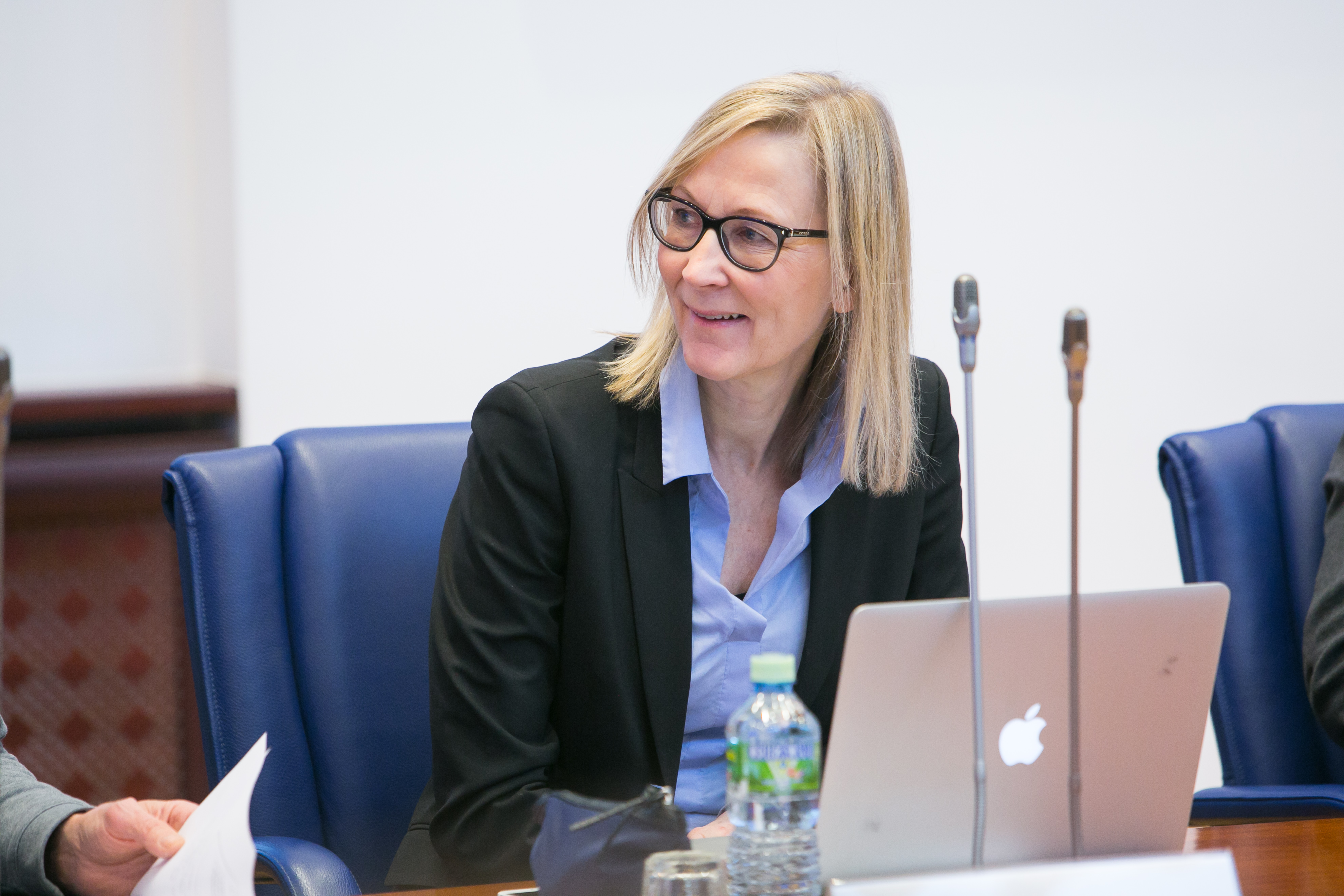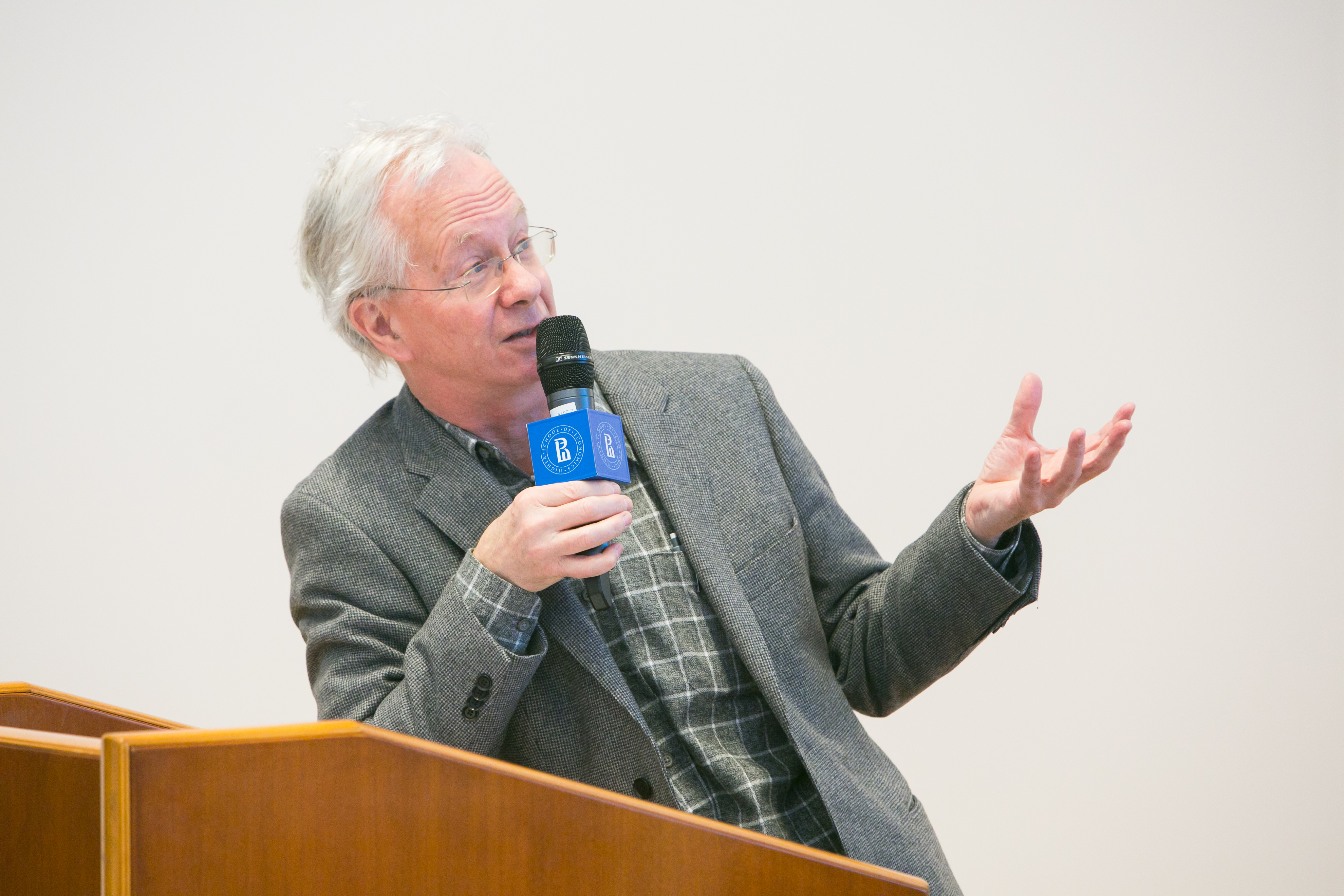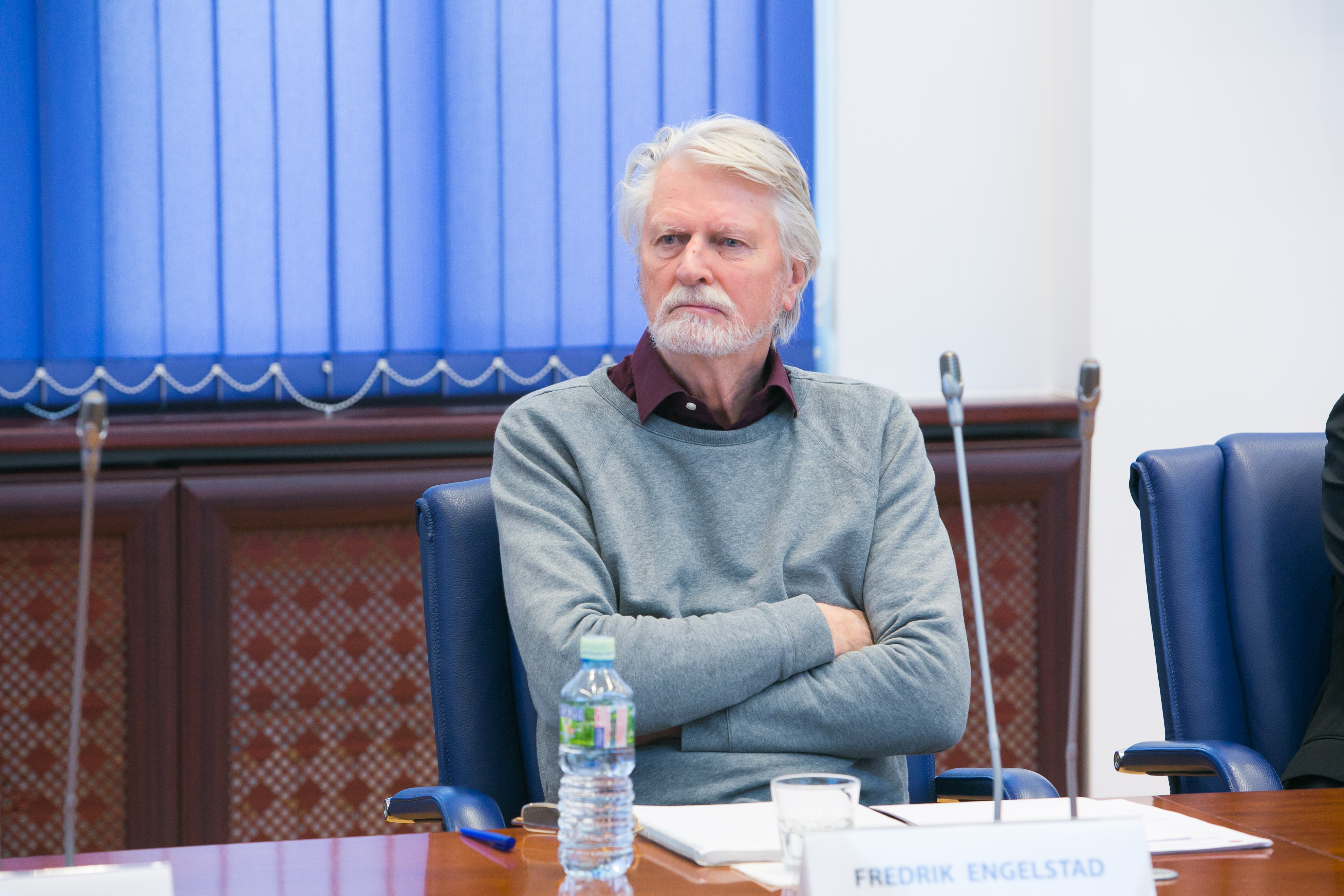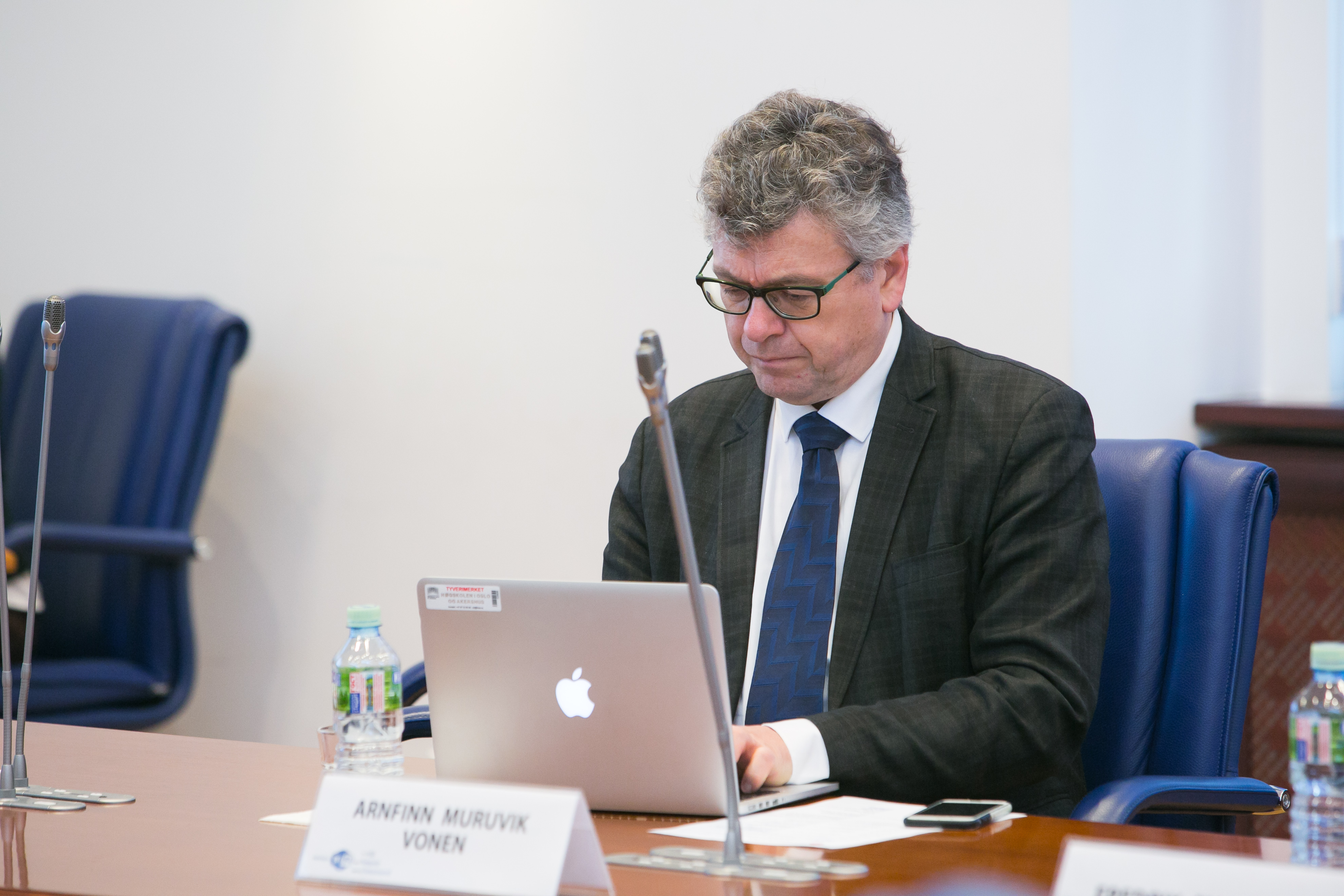Visiting Professors Speak on Norwegian Traditions
On February 15, 2017, professors from Norway delivered a series of lectures on the social, economic, political and cultural characteristics and traditions of their country as part of an initiative supported by the Norwegian embassy in Moscow and the University of Oslo, the oldest and largest Norwegian state university. With a strong tradition in the social sciences, the university has become a natural partner of the Higher School of Economics. Leidulv Namtvedt, Ambassador Extraordinary and Plenipotentiary of Norway to Russia was present at the event.
Religious and Secular Identity in Norway
Giving a lecture on religion and identity in Norway, Aud Tønnesen, Professor of Church History at the University of Oslo spoke about religion and identity primarily from a historical point of view with an emphasis on the relation between church and state.

Aud Tønnesen, Professor of Church History at the University of Oslo
‘Until this year, Norway had a state church, the Evangelical Lutheran Church of Norway’, she said. ‘We are at the same time some of the most secularized people in Europe. This is a paradoxical situation worth reflecting over’.
In an interview with the HSE news service, Professor Tønnessen spoke about contemporary studies in theology, where the University of Oslo has a strong tradition, as well as the potential for increased academic cooperation between Norwegian and Russian researchers.
‘Students have different reasons for choosing theology today’, she said. ‘There is a growing public interest in religion, so academic and critical competence in religion and theology is important. I also think it is important to train people in theology independently of church or religious community’.
‘There is an interest in orthodox religion at my faculty’, she added, ‘and the topic of politics, religion and nationalism is certainly worth exploring. ‘I look forward to learning more about the research focus and study programs at HSE. I can see from the web that there are possible mutual interests that could be explored further. I also hope that I can contribute to increased interest in Norway and the Nordic countries’.
Exploring the Nordic Model and Welfare Politics
Lars Mjøset, Professor of Sociology at the University of Oslo, delivered a lecture entitled ‘Elites and social movement in the historical development of the Nordic models’.

Lars Mjøset, Professor of Sociology at the University of Oslo
‘The Nordic Model refers the a peculiar kind of mixed economy system, marked by social protection due to a generous, universal welfare state financed by rather high taxes’, said Professor Mjøset, adding that it features a labour market based on broad, negotiated agreements between two well-organized social partners (labour and capital), and a set of institutions that maintains innovation, adjustment and reskilling to tackle the challenges imposed on a small open economy by a shifting world economy.
During his two-day stay in Moscow, Professor Mjøset plans to hold several meetings at HSE with the aim of possibly developing cooperative projects between Norwegian and Russian researchers; Norwegian-Russian research cooperation has traditionally focused on medical research.
‘I look forward to an interesting dialogue on international developments as well as on developments in Russia and in the Nordic area’, he said.
Fredrik Engelstad, Professor of Sociology at the University of Oslo, gave a lecture entitled ‘Welfare Politics of Norway and the Nordic Countries’, which he sees as a potential springboard for joint comparative work with Russian academics.

Fredrik Engelstad, Professor of Sociology at the University of Oslo
‘There are of course innumerable fields for possible cooperation’, he said. ‘In my own research, three fields stand out, which are comparative studies of welfare regimes, organization and leadership, and political and social elites’.
Language Identity in Norway
In a final lecture, Arnfinn Muruvik Vonen, Professor in the Faculty of Education and International Studies at the Oslo and Akershus University College of Applied Sciences, spoke about language politics in Norway.
‘In the nineteenth century, Norway chose to solve the issue of choosing an official written language norm by establishing two norms, Bokmål and Nynorsk, to coexist’, he said. ‘Today, both are extensively used in a large variety of genres, including high-quality fictional literature. Even though the two norms are still, in certain contexts, competing with each other, their very coexistence makes up an important part of the linguistic identity of Norway and the Norwegians. As a Norwegian, you are constantly reminded that your language choices are politically charged’.

Arnfinn Muruvik Vonen, Professor in the Faculty of Education and International Studies at the Oslo and Akershus University College of Applied Sciences
As for cooperation with Russian researchers, Professor Vonen said that he is looking forward to meeting HSE’s dynamic, forward-leaning colleagues and students. ‘I think that even a short visit may sometimes generate lasting contacts’, he said during a follow-up interview with the HSE News Service. ‘In my own field, linguistics, there are already many exciting points of contact’.
Languages_politics_in_Norway.pdf
Norwegian_identity_politics_in_19th_and_20th_centuries.pdf
Religion_and_identity_in_Norway.pdf
Nordic_model_ideas_and_realities_2_Elites_and_social_movement.pdf
Welfare_Politics_of_Norway_and_the_Nordic_countries.pdf
Anna Chernyakhovskaya, specially for HSE News service

